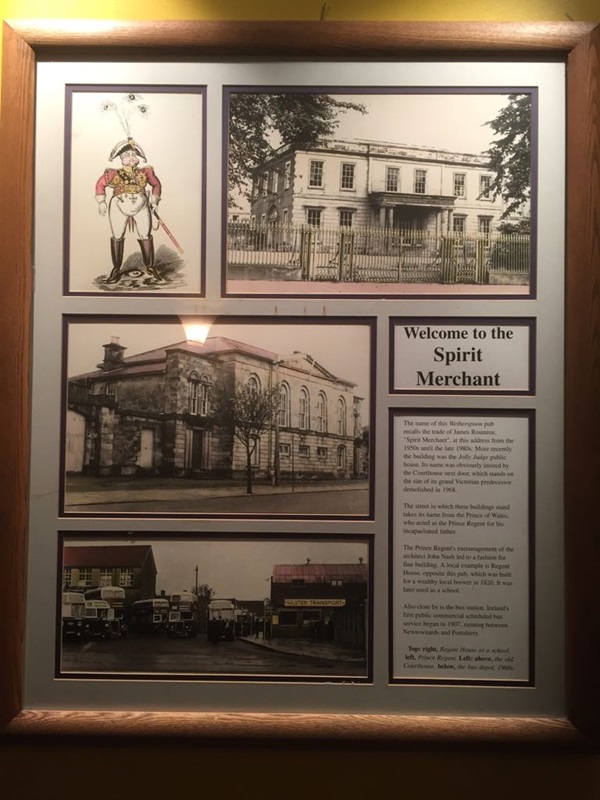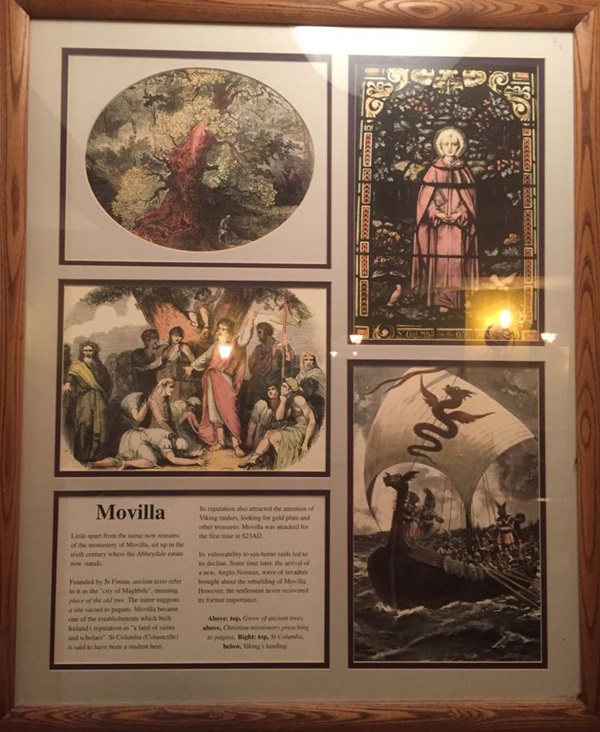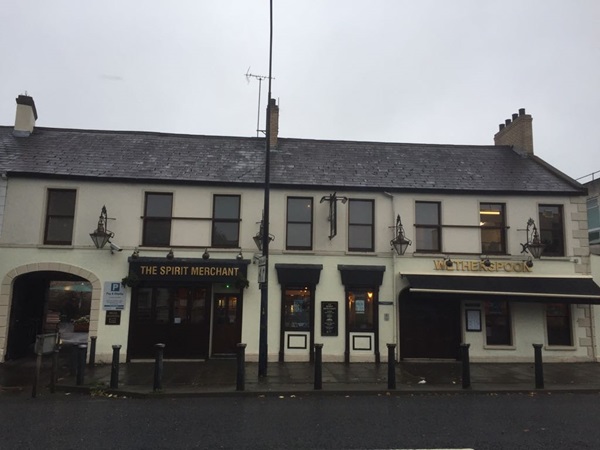This site comprises two Victorian dwellings which were later combined. Thomas Rountree, Spirit Merchant, is first listed at 54–56 Regent Street in 1950 and last recorded there in 1988. The premises subsequently became the short-lived Jolly Judge public house.
Illustrations, prints and text about The Spirit Merchant.

The text reads: The name of this Wetherspoon pub recalls the trade of James Rountree, “Spirit Merchant”, at this address from the 1950s until the late 1980s. More recently the building was the Jolly Judge public house. Its name was obviously inspired by the Courthouse next door, which stands on the site of its grand Victorian predecessor demolished in 1968.
The street in which these buildings stand takes its name from the Prince of Wales, who acted as the Prince Regent for his incapacitated father.
The Prince Regent’s encouragement of the architect John Nash led to a fashion for fine buildings. A local example is Regent House, opposite this pub, which was built for a wealthy local brewer in 1820. It was later used as a school.
Also close by is the bus station. Ireland’s first public commercial scheduled bus service began in 1907, running between Newtownards and Portsaferry.
Top: right, Regents House as a school, left, Prince Regent
Left: above, the old Courthouse, below, the bus depot in the 1960s.
Illustrations, prints and text about Movilla.

The text reads: Little apart from the name now remains of the monastery of Movilla, set up in the sixth century where the Abbedydale estate now stands.
Founded by St Finnian, ancient texts refer to it as the “city of Maghbile”, meaning place of the old tree. The name suggests a site sacred to pagans. Movilla became one of the establishments which built Ireland’s reputation as “a land of saints and scholars”. St Columbia (Columcille) is said to have been a student here.
Its reputation also attracted the attention of Viking traders, looking for gold and other treasures. Movilla was attacked for the first time in 823AD.
Its vulnerability to sea-borne raids led to its decline. Some time later, the arrival of a new, Anglo-Norman, wave of invaders brought about the rebuilding of Movilla. However the settlement never recovered its former importance.
Above: top, Grove of ancient trees, above, Christian missionary preaching to pagans Right: top, St Columbia, below, Viking’s landing.
External photograph of the building – main entrance.

If you have information on the history of this pub, then we’d like you to share it with us. Please e-mail all information to: pubhistories@jdwetherspoon.co.uk